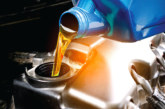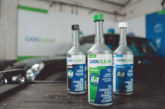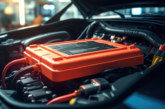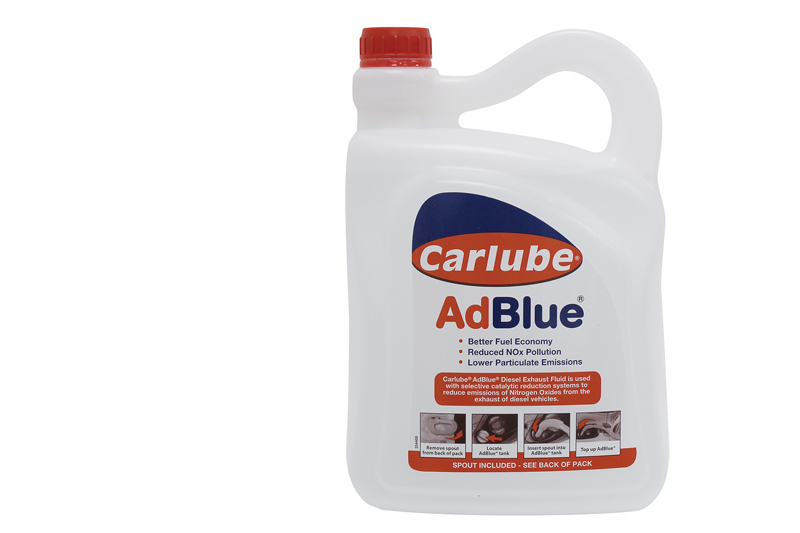
PMF spoke to Shazad Shah, Tetrosyl Product Manager, about the possible commercial benefits of top-up packs.
The introduction of Euro VI emissions regulations saw a significant reduction in the limits of Nitrogen Oxide (NOx) & Carbon Dioxide (CO2) emissions that road vehicles can emit into the atmosphere. In previous versions of the European Emissions Standards significant progress has been made to tackle other types of harmful emissions, such as diesel particulates. In the latest standard, and future versions, the focus will be increasingly on reducing NOx emissions and improving fuel economy thus reducing CO2 emissions. NOx emissions have raised serious human health concerns and CO2 as a Greenhouse gas is a major contributor to man-made climate change. NOx emissions also contribute to ground level ozone formation and can have adverse effects on ecosystems producing an environment that is destructive to fish and other animal life.
A solution to the NOx problem would be to increase Exhaust Gas Recirculation (EGR) but this would negatively impact fuel economy thus increasing CO2 emissions, this narrows the options available to the vehicle manufacturers to comply with the current emissions limits. Selective Catalytic Reduction (SCR) is a technology that can help reduce NOx emissions without adversely impacting CO2 emissions. In fact, this technology allows the engines to run closer to their optimum operating temperature giving improved fuel economy. The downside for the motorist is that the SCR technology requires them to add an additional chemical to the vehicle. This Urea solution sold under the AdBlue trademark helps convert harmful NOx emissions to harmless emissions (Nitrogen & Water).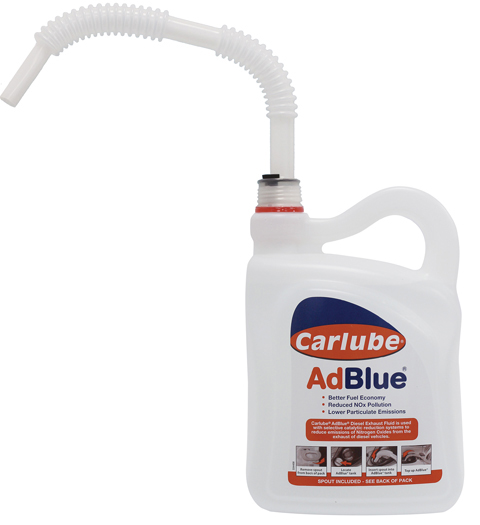
International standards
The Urea solution required for these systems must be extremely pure and carefully processed to make sure it is free from any contaminants that could damage the SCR system. The cost of replacing an SCR system can run into the thousands. Taking this into account it is extremely important to only use fluid manufactured to recognised international standards. Only fluid manufactured to these standards can be sold under the AdBlue trademark.
Typical Urea solution usage is around 5% of the fuel usage. The storage tanks on vehicles for AdBlue range from 12 to 40 litres. Therefore, the frequency of top-ups required will vary from vehicle to vehicle. Some vehicles with the larger tanks may contain sufficient solution to not require a top-up between regular services. We are seeing the majority of vehicles equipped with such systems do require an AdBlue top-up between services. Having the AdBlue reservoir refilled will add to servicing costs, especially if the vehicle is taken back to the garage for an AdBlue refill between services.
Top-up packs
There are various pack sizes available in the market, ranging from 1.5 litre up to 10 litre packs. Having studied the consumer market at length, Tetrosyl believes that a 3.5 litre product would be the optimum size for the top-up market. This size will give the ease of use of a small easy to handle container but at the same time provide the consumer with enough fluid for a top-up that will give a reasonable amount of driving (approx. 1,500 miles). This mileage will vary depending on the driving conditions and the types of journeys the vehicle undertakes. Stocking these products will enable a motor factor to target both the trade, for their own use as well as to sell to their own customers as an up-selling opportunity, along with consumer customers.
The 3.5 litre pack features a special recess in the back which is able to accommodate the long flexible spout that is used to dispense the AdBlue by providing easy access to the many differently-located vehicle filler caps. User-convenience is further enhanced by the large handle and wide base for controlled pouring. The new pack has been extremely well received in the market.
Whilst AdBlue is a harmless fluid, getting this onto the vehicle is undesirable so when selling the products, sales staff should advise that care should be taken when filling the AdBlue reservoir.
Carlube also markets AdBlue in 10 & 20 litre sizes for workshops and commercial vehicles.


